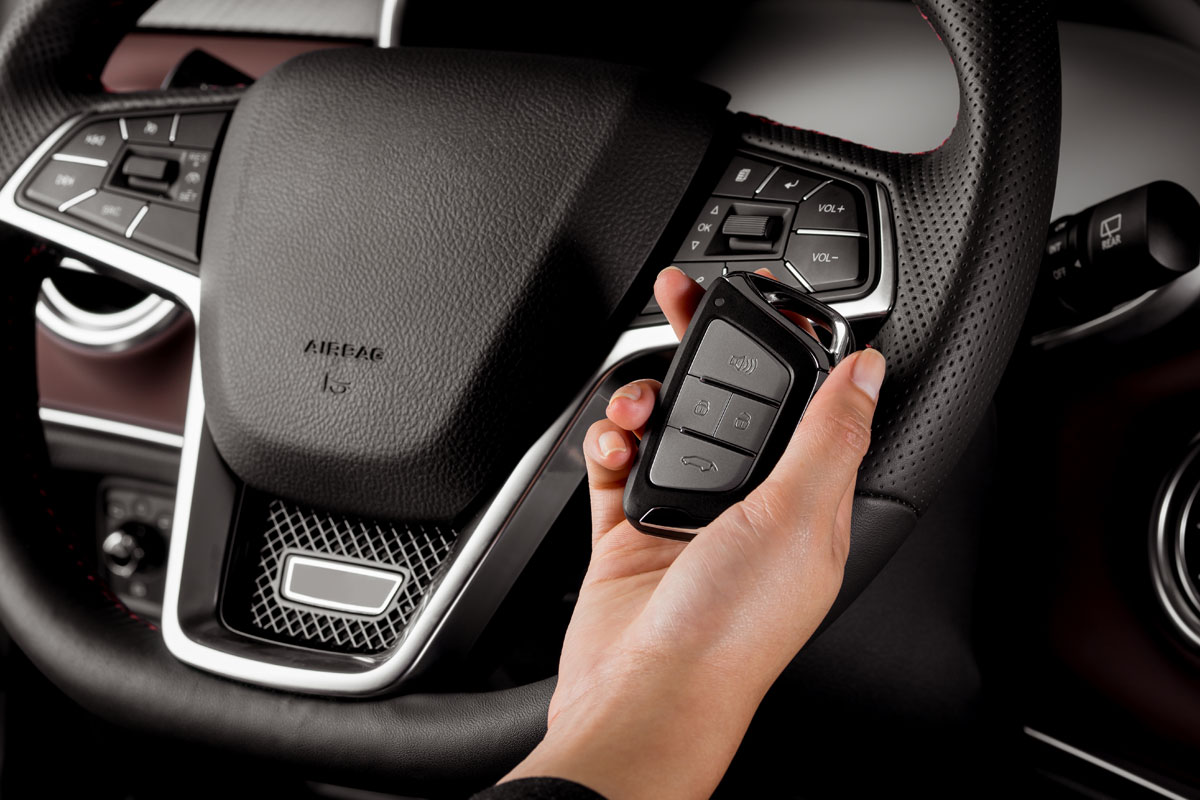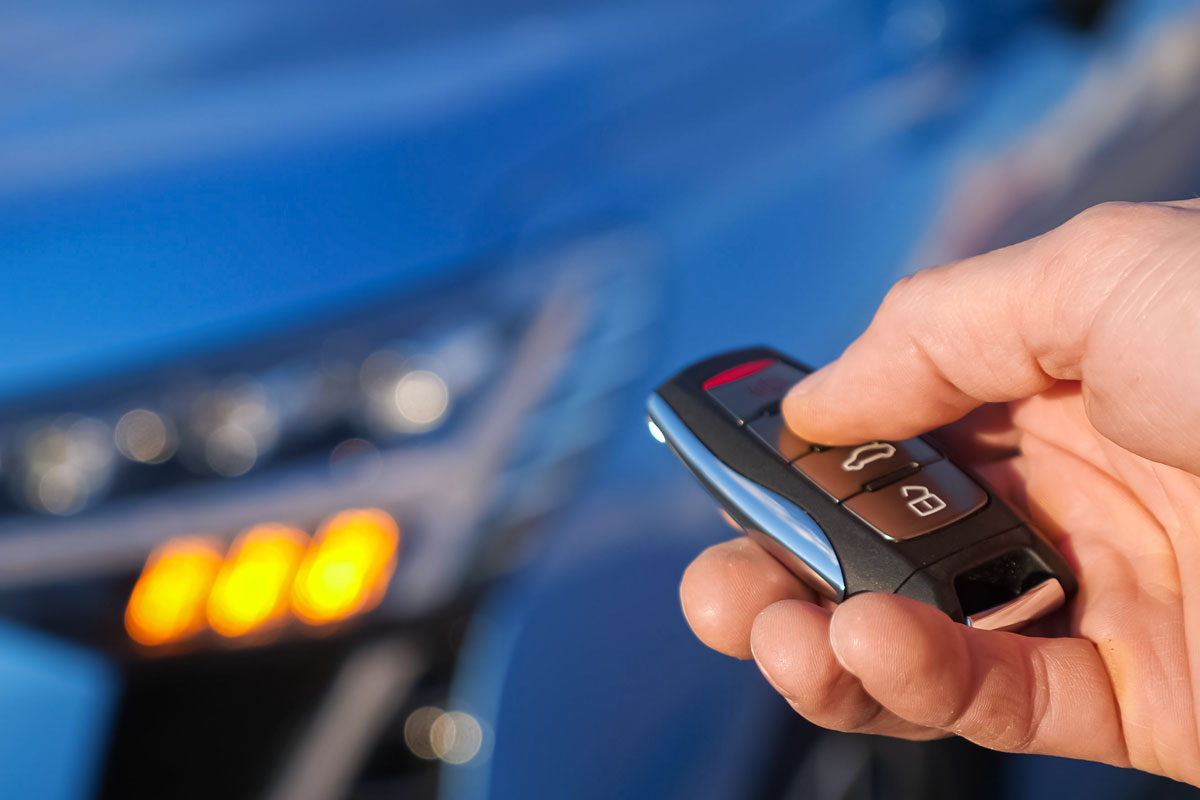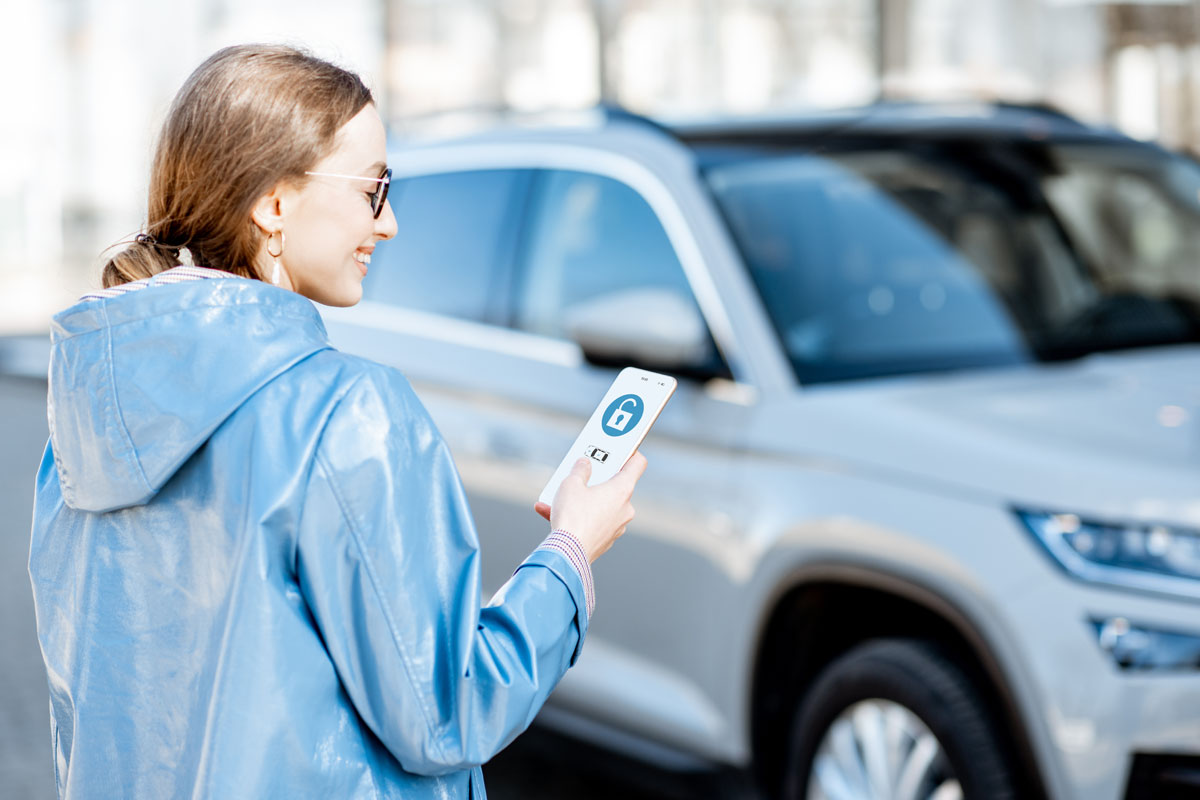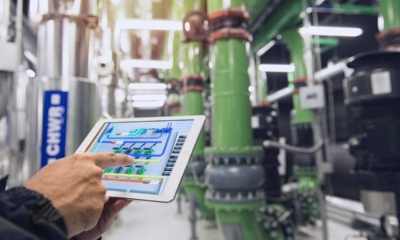
Remember when you needed a key to get into your car? Well, maybe not. But those days are here again — except this time the keys aren’t made of metal, but 1’s and 0’s. Digital car keys are transforming interactions between people and their vehicles. Here’s how and the technologies driving this innovation.
What Are Digital Car Keys?
Digital car keys, also known as virtual or mobile car keys, are a new technology that allows drivers to use their smartphones to lock, unlock, and start their cars. These keys use Near-Field Communication (NFC) technology or Bluetooth® to communicate with the car’s electronic system.
With a digital car key, the driver can share access to their vehicle with family members, friends, or service providers, such as a valet parking attendant or a car-sharing service. The car owner can send a temporary key to someone else’s smartphone and limit the key’s use, such as limiting the time or distance they can drive the car.
Digital car keys are more convenient than traditional ones because they eliminate needing a physical key. They also offer additional security features, such as biometric authentication, which uses facial recognition or fingerprint scanning to verify the user’s identity before allowing access to the vehicle. However, this technology is still relatively new, and not all vehicles or smartphones are compatible with digital car keys.
The Technologies That Make Digital Car Keys Work

Several technologies are making digital car keys possible, including Bluetooth Low Energy®, Ultra-Wideband (UWB), and Near-Field Communication (NFC). Each technology has its own strengths and limitations, and automakers are experimenting with different combinations to offer the best user experience.
Bluetooth Low Energy
Bluetooth Low Energy is the most commonly used technology for digital car keys, and it is a low-power version of Bluetooth that allows for short-range communication between devices. Bluetooth Low Energy can be used to unlock and start a car and is compatible with most modern smartphones.
UWB
UWB is a high-bandwidth, short-range wireless technology that enables accurate location tracking. UWB can be used to unlock a car when the user is within a few feet of the vehicle. It can also be used to create a virtual “geofence” around the vehicle, preventing the car from being started or moving outside of a certain area.
NFC
NFC is another short-range wireless technology used for contactless payments and data transfer. NFC technology can be used to unlock a car or start the engine when the user holds their smartphone near the car’s NFC reader. However, NFC has a limited range of only a few inches, which makes it less convenient than Bluetooth Low Energy or UWB.
Addressing Security Concerns
The constant communication between the car and the smartphone required for digital car keys comes with security risks, as any compromise to the security of this data could put the safety of the vehicle and its user at risk. As a result, many digital car key systems incorporate Secure Elements (SEs) to enhance security.
The Role of SEs in Digital Car Keys
SEs are hardware-based, battery-powered security modules designed to protect sensitive data and prevent unauthorized access to that data. They are separate from the smartphone’s main processor and operating system, which reduces the risk of malware or hacking attacks. SEs can also store cryptographic keys and digital certificates, which can be used to authenticate the user and the car.
Digital car key systems that use SEs can provide an additional layer of security by encrypting the data exchanged between the car and the smartphone. This ensures that even if an attacker intercepts the data, they cannot read or modify it.
Another benefit of SEs is that they can store biometric data, such as fingerprints or facial recognition data. This data can be used to authenticate the user before granting access to the car, preventing unauthorized access.

The Pioneers Behind Digital Car Keys
A growing network of Original Equipment Manufacturers (OEMs) are creating digital keys, including the Car Connectivity Consortium (CCC). The CCC is a group of automotive and technology companies that have created a standard for digital car keys. This standard is called the Digital Key Release 1.0, which defines a secure method for using a smartphone as a digital car key.
The CCC’s Digital Key Release 1.0 standard defines a common architecture, and data format automakers can use to create digital car keys. This standard allows automakers to develop digital car keys across multiple smartphone platforms, including iOS and Android.
Several automakers, including BMW, Audi, and Volkswagen, have already adopted the CCC’s Digital Key Release 1.0 standard. These automakers are using the standard to create digital car keys compatible with the latest smartphones.
In addition to the CCC, other automakers are creating their digital car key systems. For example, Tesla has created a digital key system that uses Bluetooth Low Energy to communicate between their cars and smartphones. Tesla’s digital key system also includes biometric authentication, which can use facial recognition or fingerprint scanning to verify the user’s identity.
Indeed, digital car keys can vary between car manufacturers based on various factors, including the technology used, the features offered, and the security measures in place. Automakers are combining these different technologies and features to provide the best user experience for their customers. Some cars may use Bluetooth Low Energy for basic functions, while others may use UWB or NFC for more advanced features like geofencing or biometric authentication. As digital car keys evolve, we expect to see more innovative use cases and improved security features.
How Ambiq Contributes
Digital car keys have joined the march of cutting-edge IoT devices, and like other new tech, they can be made even more powerful with IIoT semiconductors. Ambiq’s system-on-chip (SoC) and real-time clock technologies are combining high-powered computing with energy efficiency so advances like digital car keys can continue moving forward. To learn more, connect with Ambiq® today.


